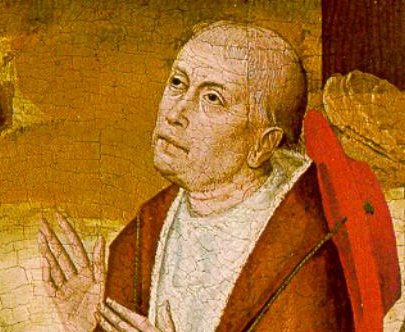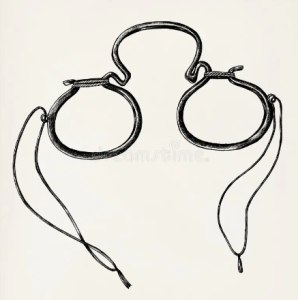
Holiday time has finally arrived and many of you will heading to (or returning from) the mountains, the sea, cruises or simply enjoying the summer in your gardens or on your patios In such circumstances, a glass of nicely chilled white wine often goes down well.
 Although it doesn’t always enjoy the reputation it deserves, Riesling can be very refreshing. Not many people know however, that there’s an historic connection between Moselle and optics. So, if you happen to raise a glass of a Moselle Riesling spare a thought to Nicolas of Cusa, theologian and pioneering scientist, who died 660 years ago this week on the 11 August 1464.
Although it doesn’t always enjoy the reputation it deserves, Riesling can be very refreshing. Not many people know however, that there’s an historic connection between Moselle and optics. So, if you happen to raise a glass of a Moselle Riesling spare a thought to Nicolas of Cusa, theologian and pioneering scientist, who died 660 years ago this week on the 11 August 1464.
Nicolas was born in 1401 in Kues, now part of Bernkastel-Kues, where his birthplace can still be visited. His family, being boat and ferry owners were relatively wealthy and could afford to fund his education. In 1416 he entered Heidelberg University to study liberal arts before moving to Padua where, in 1423, he received a doctorate in canon law. This set him out for a successful career in the church eventually becoming a cardinal and Bishop of Brixen.
Apart from his impressive canonical credentials, the protagonist of this tale was also what can best described an early Renaissance man. In his treatises he shows to be strongly influenced by Neoplatonism and negative theology (‘negative’ in the sense of negotiation). Nicolas also developed an interest in natural sciences. In mathematics he attempted to square the circle, but suspected in his writing that it was impossible and could only be approximated. It was only in 1882 that Ferdinand von Lindemann proved the transcendence of Pi and therefore showed that Nicolas’ initial suspicion had in fact been correct.
Nicholas’ contribution to medicine was even more far-reaching and is still in use today in similar fashion – he was the first to suggest counting the pulse rate rather than just checking whether a patient had a pulse or not. To do this he suggested the use of a water clock. Of course, nowadays a doctor would use a watch, but the principle is still with us.
It’s his contribution to optical science which makes him of greatest interest however to those us of working in photonics today since Nicolas de Cusa’s contribution to optics is critical to optical design. Whilst spectacles came into use in the 13th century, with Roger Bacon describing in 1250 the grinding and polishing of Beryl to make ‘reading stones’. Bacon recommended these in 1267 in a letter to the pope to be issued to clerics who had problems with their eyesight. However, all these ‘reading stones’ were convex, so could therefore only correct Hyperopia or far-sightedness which is defined by the eye focussing to a spot behind the retina. In other words, distant objects can be seen clearly whilst those nearby are blurred.

Nicolas de Cusa was, in 1451, the first to propose the use of concave lenses to correct myopia or near-sightedness where the eye lens focusses to a spot in front of the retina, so enabling distant objects to become clearer. Concave lenses of course have many other uses beyond optometry and are used for astronomical, imaging and other related systems and applications.
Combining both types of lenses to make bi-focal spectacles would take another 300 years or more – it was the American politician Benjamin Franklin who in 1780 invented bi-focal spectacles, though nowadays he is probably better known for his invention of the lightning conductor.
So as you sip your glass of Moselle, or even wine of another terroir or grape variety than Riesling, spare a thought for Nicolas de Cusa and toast his inventiveness, particularly if you are wearer of spectacles.
At MPO we do not make spectacles, but is you need lenses, even large ones of >200mm diameter, for your high power laser system, please talk to us. We can make them and also have a good range of commercial and in-house metrology to verify them.
If you’d like to talk to use about lenses, or other optics, large or small, please get in touch, and if you visit the Isle of Man, or meet us at trade show, we’ll be happy to invite you to a glass of wine!

